2023
Critical Imagination

Amateur Cities
Housing debate: Alternatives to Ownership
Op donderdag 28 maart organiseert Amateur Cities de debatavond Alternatieven voor woning eigenaarschap bij de Independent School for the City in Rotterdam.
Read More >>Critical Imagination

Amateur Cities
Woondebat: Vormgeven aan (samen)leven
Het publieke programma Vormgeven aan (samen)leven, georganiseerd door Amateur Cities bij CASA/NiCo, in Arnhem vond plaats op 30 november 2023. Tijdens het debat Vormgeven aan (samen)leven was de ‘normaliteit’ van hoe we nu wonen het centrale thema. In een gesprek over andere vormen van wonen hebben we gefocust op de vraag hoe je deze concreet kan maken.
Read More >>Critical Imagination
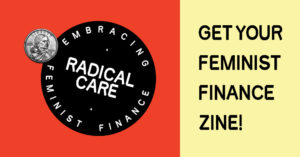
Amateur Cities
Radical Care: Embracing Feminist Finance
Amateur Cities and the Institute of Network Cultures are launching the Feminist Finance Zine: Embracing Radical Care. It is a collaborative work focusing on economic alternatives and inclusive financial futuring. The zine aims to inspire local networks of care and democratic infrastructures of money.
Read More >>Critical Imagination

Dounia Kchiere
The Racism Onion: Considerations on Discrimination
This article is a personal reflection on discrimination and racism. The author unfolds different layers of what she calls the Racism Onion. She analyzes the different shapes and forms discrimination takes depending on who we are and our particular circumstances.
Read More >>Critical Imagination

Amateur Cities
Woondebat: Bouwen met een langdurig perspectief
Op donderdag 8 februari a.s. organiseert Amateur Cities het debat Bouwen met een langdurig perspectief bij Waag Futurelab in Amsterdam - een avond waarin we kijken naar de woonopgave en de toekomst van ons wonen, en naar hoe we écht langdurige relaties met het landschap en onze zowel menselijke als niet-menselijke buren op kunnen bouwen.
Read More >>Critical Imagination

Amateur Cities
Debatreeks: Anders werken aan wonen
Nederland staat voor een complexe woonopgave. In het licht hiervan organiseert Amateur Cities vanaf het najaar van 2023 een drietal publieksevents rond het thema Anders werken aan wonen, als onderdeel van het gelijknamige programma van het Stimuleringsfonds Creatieve Industrie.
Read More >>Critical Imagination
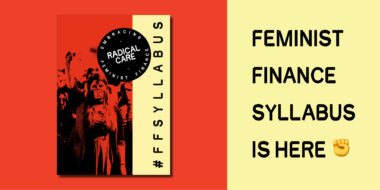
Amateur Cities
Feminist Finance Syllabus is a supplement to the Feminist Finance Zine titled Radical Care: Embracing Feminist Finance by Amateur Cities and Institute of Network Cultures. This syllabus is a starting point for diving into the field of feminist finance. It features scholarly concepts, grassroots projects, artistic thought-experiments, fictional responses, and questions without answers.
Read More >>2018
Critical Imagination
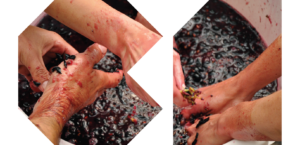
Cristina AmpatzidouAnia Molenda
Rather than a political vision of how life in cities ought to be organized, contemporary planning resembles a managerial task that coordinates flows of money, materials, people, and information. Paradoxically, this increasing centralization of power is accompanied by a rhetoric of citizen empowerment.
Read More >>Critical Imagination
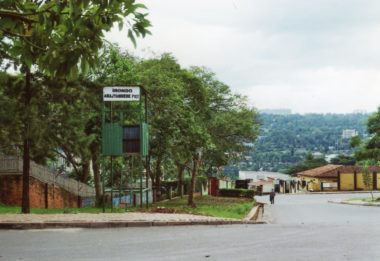
Elisa Tangheroni
The permanent spatial state of exception in the urban environment is a much-discussed topic in postmodern discourse, yet a critical re-assessment of the contemporary situation is needed. The global proliferation of urban enclaves, and in consequence their ghettoization, indicates an urgent need for social sustainability.
Read More >>Critical Imagination
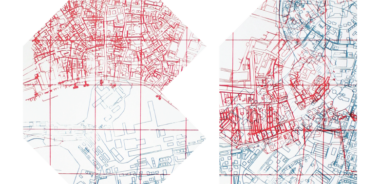
Rebekka Kiesewetter
From Exclusion to Autonomy: Publishing as a Spatializing Act
Publishing, understood as a process of ‘making a public’ that informs a ‘capacity to act,’ has the potential to develop as an institutionalizing means, an interface for connecting people with different backgrounds, and as a way to relate with each other. It can be used as a means for instigating critical discourse and engagement, for proposing alternative value systems and opening new political horizons.
Read More >>Critical Imagination

Davide Tommaso Ferrando
The urban image today is the product of a complicated relationship between the specific characters of local environments and the global imaginary of the market, in which the former reshape the latter and not the other way around.
Read More >>Critical Imagination
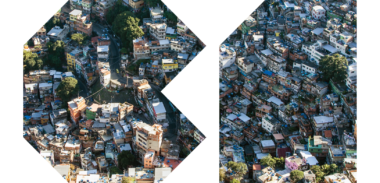
Maria Dada
Cities today are digital-physical hybrids. Parts of the city exist in our computationally mediated imagination and other parts are experienced through our bodies.
Read More >>2017
Critical Imagination
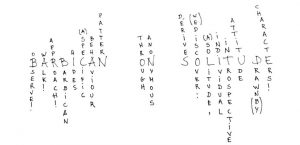
Fernando Ferreira
Barbican on Solitude: a Story of Walking
Walking is a verb that describes the body’s movement traversing a specific surface. Walking is also a practical and theoretical methodology that has been explored by various contemporary artists, architects and art movements, especially since the beginning of the twentieth century. Fernando Ferreira assumed the act of walking as an allegorical and potential narrative at the Barbican. His walk story is unfolds in a three-act structure.
Read More >>2016
Critical Imagination
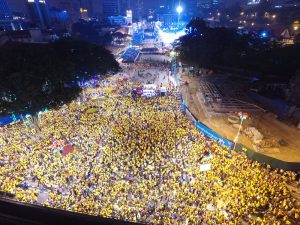
Nurul Azlan
Bersih 4: Street Protests as a Form of City Making
Protesters participate in city making, but what does it mean when protesters refuse to contest the space, and instead choose to politely hover just beyond its boundary?
Read More >>Critical Imagination
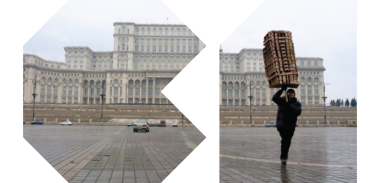
Rosa Rogina
Is architecture only a passive reflection of current political matters or can it formulate its own claims, demands, agendas and above all, can architecture use the means of activism to critically engage with broader social and political concerns?
Read More >>Critical Imagination
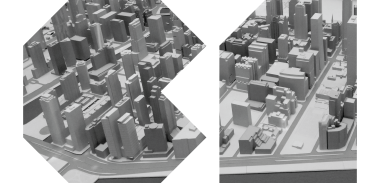
Alberto Vanolo
Urban Branding and the Violent Ghosts of the Politics of Representation
City branding is a relevant issue among urban policy makers. In a nutshell, it refers to the promotion of the image of a city, mostly in order to attract tourists, investments, mega-events, such as the Olympic games, and new wealthy residents, such as the members of the so-called ‘creative class’. This commentary will summarizes some ideas that analyze the politics of representation triggered by the common, and apparently banal, everyday practices of urban branding.
Read More >>Critical Imagination
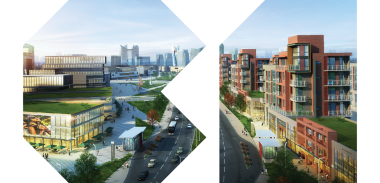
Tobias Revell
Seizing the means of rendering
There is a history of the future written in renderings; images of fantasy assembled as marketing, escapism and policy toolkits.
Read More >>Critical Imagination
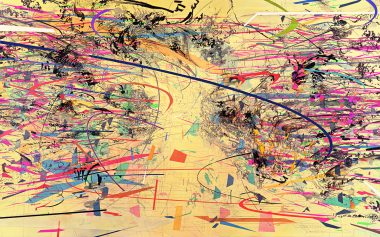
Kolar Aparna
Lost Cities and Losing oneself in the City
What if we gave up the wish to contain cities and citizenships?
Read More >>Critical Imagination

Max Haiven
The Four Faces of Financialization: Cities as a Site of Struggle
In spite of describing an important set of social and economic transformations, the word financialization has become used so frequently and in so many contradictory ways, that it risks becoming as fragile and confusing as other recent buzz-words like globalization, neoliberalism and gentrification. Yet the forces at work behind the term are real and have far reaching impact on citizens, cities, theorists and activists; and we ignore it at our peril.
Read More >>2015
Critical Imagination

Brett Scott
Bringing the Jungle to the City
The ambiguities of urban dynamics and the interfaces that connect and disconnect us from the larger context and from each other.
Read More >>Critical Imagination
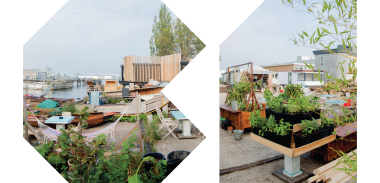
Edwin Gardner
A vanguard of architects is not building skyscrapers or concert halls. They are not bothered by having their own signature style. Even aesthetic perfection leaves them cold. The self-conscious designer of modernism, with its unassailable belief in social engineering, is waning. One could say that the new architect is more of a hacker.
Read More >>Critical Imagination
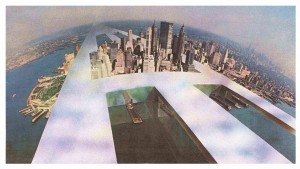
Tobias Revell
Continuous Monuments and Imaginable Alternatives
This essay aims to connect the world of global homogeny that Superstudio were critiquing with their seminal work ‘The Continuous Monument’ with the modern project of the Smart City and suggest that, particularly with the activation of imagination of technologists, designers, architects and urbanists, this new homogeny might be challenged and alternatives might be imagined.
Read More >>Critical Imagination

James Brown
What are the implications of the spirit of late capitalism if it blends work and play, labour and leisure, especially given that this blending happens not only in terms of time but also in terms of space? The coworker’s professional life is distributed across various places (home, co-working space, the occasional office, depending on the project they are working on) and times (smartphones and other portable devices are also part of this ethos). How does this new architecture of professional and personal life reconfigure time and space?
Read More >>Critical Imagination
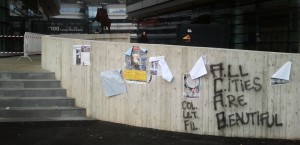
Alberto Vanolo
Smart City or The serial reproduction of an urban vision
A couple of months ago I bought a brand new video game console, Sony’s well known PS4. Despite being almost 40, I enjoy video games very much, and I also think that they are relevant cultural products to be carefully considered in the social sciences (I often use such an argument in order to justify my playing). Included in the console package, there was one video game called Watch Dogs, which monopolized my late summer nights.
Read More >>Critical Imagination
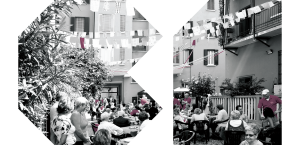
Chiara QuinziiDiego Terna
An Old Way of Living, Yet Innovative
The Statement on the International Co-operative Identity ratified by the International Co-operative Alliance (ICA) in 1995 voices that ‘Co-operatives are based on the values of self-sufficiency, self-responsibility, democracy, equality, equity and solidarity’. Nearly 20 years later terms such as ‘self-sufficiency’ have acquired an extensive array of meanings, ranging from energy and food production to the advent of a myriad of types of user-generated multimedia content provided by the so-called web 2.0.
Read More >>2014
Critical Imagination
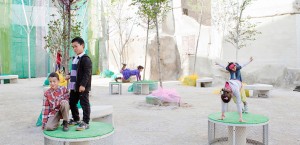
Chryso Onisiforou
Recent conditions of the construction crisis and widespread recession have led us to believe that we live in an era of not only strict economic restrictions and austerity but also and unavoidably, in an age of an irrefutable decreasing of resources.
Read More >>Critical Imagination
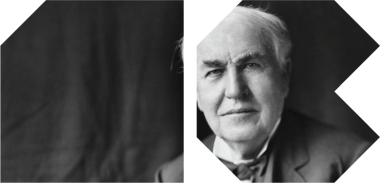
Ania MolendaCristina Ampatzidou
The word amateur has two meanings. One refers to the etymological origin of the word and is derived from French - amateur ‘lover of’ or from Latin - amator ‘lover’. Both come from the verb amare ‘to love’. According to this definition an amateur is a person that engages in a pursuit on an unpaid basis; one would assume – out of passion or love. One might also say that being an amateur is then quite nobilitating and can be associated with social values such as altruism.
Read More >>